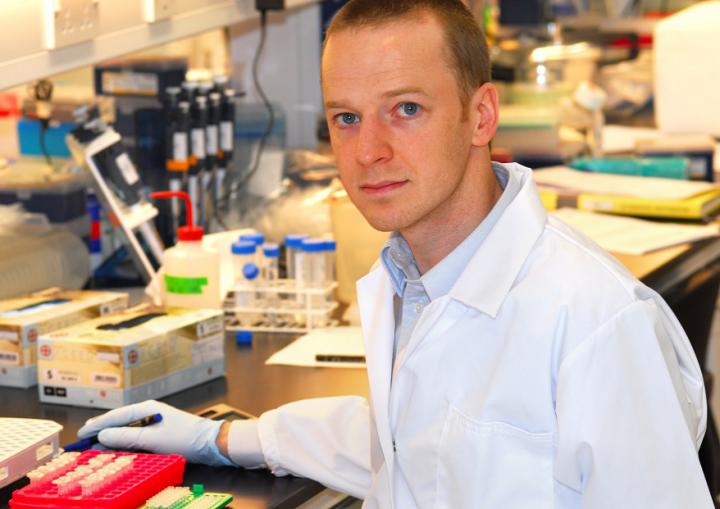Study reveals insights into inflammatory bowel disease
Scientists at The Roslin Institute have identified gut macrophage dysregulation as a key process leading to the disease.

An international study led by scientists at The Roslin Institute may have a future impact on the treatment of inflammatory bowel disease.
Dr Kenneth Baillie (pictured) and Professor David Hume at The Roslin Institute, together with colleagues from the international FANTOM Consortium, identified gut macrophage dysregulation as a key process leading to the disease.
Inflammatory bowel disease (IBD) is caused by the body's own immune system attacking elements of the digestive system. Over 200 different regions of the genome have been associated with IBD susceptibility.
Most studies to date have implicated over-activation of T-cells, aberrant protein and organelle recycling and abnormal immune responses to certain bacteria in the development of the disease. However, the role of intestinal macrophages, which are key regulators of the inflammatory response in the gut, is not clearly understood.
Using transcriptional profiling data, the authors were able to dissect the complex sequence of gene expression events that takes place in macrophages as they differentiate to adapt to the gut wall.
Professor Hume, who led the study, said “This study represents a paradigm shift in the analysis of genome-wide. Instead of approaching the question hypothesis-free, we used genetic data from humans to test clear prior hypothesis and found that it was strongly supported by the data. The results suggest potential therapeutic approaches, in that we now know that monocyte differentiation is the key process that goes wrong in IBD patients”.
Related links
Original article on PLOS Genetics

